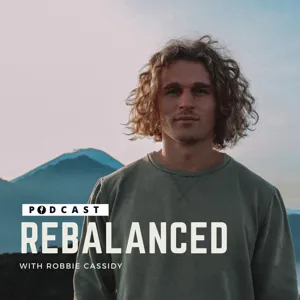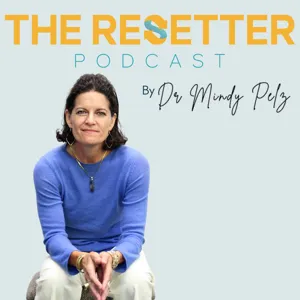Podcast Summary
Our perception of stress matters: Recognizing the difference between short-term and prolonged stress and managing stress levels can positively impact our health. Sponsors Eight Sleep and Momentus offer science-based tools to enhance everyday life.
Our perception of stress plays a significant role in how it affects us. According to Dr. Alia Crum's research, the way we think about stress can impact our immune system and sleep. While short-term stress can have positive effects, prolonged stress can lead to negative consequences. It's essential to recognize the difference and manage our stress levels to maintain optimal health. Additionally, the Huberman Lab event was sponsored by Eight Sleep, a company that produces smart mattress covers with heating and cooling capacity, and Momentus, a supplement brand that offers high-quality supplements. Both companies align with the Huberman Lab's mission to provide science-based tools for everyday life.
Understanding the Impact of Stress on Our Health: Identifying and managing long-term stress through supportive environments and professional help can improve overall well-being and sleep quality. Hypnosis and relaxation practices aid in stress management.
Our knowledge and perception of stress shape its impact on our physiology. Short-term stress is beneficial, but long-term stress can impede our sleep, immune system, and overall well-being. It's crucial to identify and address long-term stress through supportive environments and professional help. Hypnosis and practices that promote relaxation can aid in managing stress and improving sleep quality. Understanding the continuum of stress responses and the effects of various practices can help us make informed choices for our mental and physical health.
Breath work and hypnosis: Deep relaxation and focus: Breath work and hypnosis induce deep relaxation, focus, and alertness, with hypnosis also offering unique insights into vision and mental states and access to neuroplasticity.
Breath work and hypnosis share similarities in their effects on the body. Both practices can lead to a state of deep relaxation with focus and alertness, which can be beneficial for various reasons. Hypnosis, in particular, has impacted the speaker's life by validating the relationship between vision and mental states and providing a unique way to access neuroplasticity. The speaker practices self-hypnosis to help manage anger and stress. Regarding the microbiome, the speaker is fortunate to have a neighbor who is a leading researcher in the field. The most effective protocols for boosting the microbiome are not explicitly mentioned in the discussion, but the speaker expresses admiration for the work being done by their neighbor's lab.
The Importance of Nasal Breathing and Microbiomes in Our Noses: Nasal breathing filters germs effectively due to microbiomes, which are crucial for our health. Prebiotic fiber, low sugar fermented foods, and lifestyle choices like reducing inflammatory markers support a healthy microbiome, contributing to better sleep, social interactions, and overall well-being.
Our bodies are home to trillions of microbes, forming complex microbiomes in various parts of our bodies, including our noses. Nasal breathing is important as it acts as a better filter for germs due to the presence of these microbiomes. The microbiome is not just beneficial to us, but it might even be running the show, as we exchange microbial molecules during interactions. Prebiotic fiber and low sugar fermented foods are important for a healthy microbiome, along with reducing inflammatory markers through low alcohol and cold exposure. These factors contribute to overall health by improving various aspects of our lives, such as sleep and social interactions, which are essential for our well-being.
Maintaining a healthy lifestyle can improve focus for ADHD: Get enough sleep, eat well, keep a healthy microbiome, engage in social interactions, exercise regularly, and try non-sexual touch to release oxytocin for better focus
While there is no single cure for ADHD, maintaining a healthy lifestyle can help improve overall well-being and potentially enhance focus. This includes getting enough sleep, eating well, keeping a healthy microbiome, engaging in social interactions, and exercising regularly. Additionally, non-sexual touch, such as petting a dog, can release oxytocin and provide a sense of present pleasure. This neurochemical signaling system, often referred to as the "love hormone," plays a role in bonding and social connection. It's important to note that dopamine, which is associated with the pursuit of rewards beyond the skin, and oxytocin, which is released through touch and social interaction, serve distinct functions in the brain.
The Power of Animal Connection and Sleep Patterns: Interacting with animals releases feel-good chemicals, while adapting sleep patterns can help night owls function in a morning-oriented society.
Our connection with animals, particularly dogs, stems from their willingness to let us pet them. This simple act releases feel-good chemicals in our brains, tapping into ancient systems that have evolved over time. Conversely, cats engage in a more complex and human-like interaction. For night owls, functioning in a society designed for morning people can be challenging. While it's unlikely for true night owls to change their chronotype, they can adapt by adjusting their sleep patterns and making the most of short naps. Light, temperature, and other factors can help shift our circadian clocks, allowing us to adapt to different time zones or work schedules. Ultimately, maintaining healthy social connections and eye contact is essential for mental well-being.
Syncing with natural rhythms for better sleep and energy: Cold showers, bright light exposure, exercise, avoiding caffeine, synchronizing meals, and regular exercise can optimize natural rhythms for improved sleep quality and energy levels.
Optimizing your body's natural rhythms can significantly improve your sleep quality and energy levels. This can be achieved through simple practices like taking a cold shower, getting bright light exposure, exercising, and avoiding caffeine, especially in the evening. Additionally, synchronizing your meal schedule with local customs and getting regular exercise are essential. While the podcast has been a labor of love, the hosts continue to explore various tools, including behavioral techniques, nutrition, and even experimental drugs like MDMA, with proper therapeutic oversight. The goal is to help listeners improve their lives by sharing these insights and tools, rather than seeking personal credit.
Embracing continuous learning and feedback: Constructive criticism and new topics/guests can foster growth and resilience, while practices like cold water immersion and deliberate adrenaline release can help manage stress. Staying informed about neuroscience and behavioral therapeutic advancements can lead to improved mental health and well-being.
Continuous learning and adaptation are essential for managing anxiety and improving mental health. The podcast guest emphasized the importance of feedback, whether it's constructive criticism or suggestions for new topics and guests. They also discussed various practices, such as cold water immersion and deliberate adrenaline release, to help build resilience and better manage stress. Looking ahead, the guest expressed excitement about the potential of new trends in neuroscience and behavioral therapeutics, but did not believe brain-machine interfaces would be the next hot topic. Instead, they suggested a focus on understanding the complex interplay between various fields and applying discoveries from different areas to improve overall mental health and well-being.
Exploring the Potential of Avatars in Therapeutics: Avatars, like Eddie's, foster deep relationships and hold potential for various conditions, but focus should be on understanding and leveraging existing nervous system circuits, not brain chip implantation.
Avatars, like the ones created by Eddie, offer a positive use of AI in therapeutics by allowing deep relationships to form between patients and their virtual selves. This technology holds great potential for various conditions such as Parkinson's movement disorders, epilepsy, and locked-in syndrome. However, we are still many decades away from brain chip implantation for enhancing memory. Instead, researchers should focus on understanding and leveraging our nervous system's existing circuits. The therapeutic community should expand its toolkit, and the lines between different fields of psychology are starting to blur. In neuroscience, collaboration and interdisciplinary approaches lead to faster progress. The speaker, who is an omenovore, emphasizes the importance of moderation in nutrition and fitness.
Improve health through nasal breathing and stress management techniques: Incorporating nasal breathing during workouts and practicing stress management techniques like the carbon dioxide tolerance test can enhance overall health and resilience, reducing sleep apnea risks and improving daily life.
Incorporating nasal breathing during cardiovascular work and practicing stress management techniques, such as the carbon dioxide tolerance test, can significantly improve overall health and well-being. The speaker emphasized the importance of nasal breathing in eliminating sleep apnea and its associated health risks. Additionally, managing carbon dioxide levels through controlled breathing exercises can help gauge stress levels and improve overall resilience. These practices, though simple, can have a significant impact on one's daily life and long-term health.
Checking in on stress and finding meaning in work: Practice stress management by monitoring body responses, find joy in work, and intentionally seek meaning for long-term success and well-being
Managing stress and finding meaning in your work are crucial for long-term success and well-being. By checking in on your body's responses, such as breath rate and heart rate variability, you can gauge your stress levels and make adjustments as needed. Additionally, finding joy and excitement in your work, even from small interactions or unexpected sources, can help you maintain motivation and connection to your larger goals. It's important to remember that meaning is not always clear-cut and may require intentional effort to discover. Learning to tap into this feeling of connection and meaning involves mental flexibility and a shift in perspective, allowing you to see yourself as a conduit for positive change rather than solely focused on outcomes. Deliberately moving between focus and rest, while maintaining a sense of control over your physiological processes, can lead to increased feelings of happiness, delight, and overall well-being.
Expressing gratitude and excitement for the science community: The speaker emphasized the importance of science, expressed gratitude for audience's interest, and highlighted the significance of sponsorship in bringing the community together.
The speaker expressed gratitude for the audience's interest in science and acknowledged the support of their sponsors. They expressed confidence in the effectiveness of the event and wished everyone a great time in the city. It's clear that science is a valuable and engaging field that brings people together. The speaker's words conveyed a sense of excitement and appreciation for the community of scientists and enthusiasts. They also highlighted the significance of sponsorship in making such events possible. Overall, the discussion emphasized the importance of science and the positive impact it has on individuals and communities.






